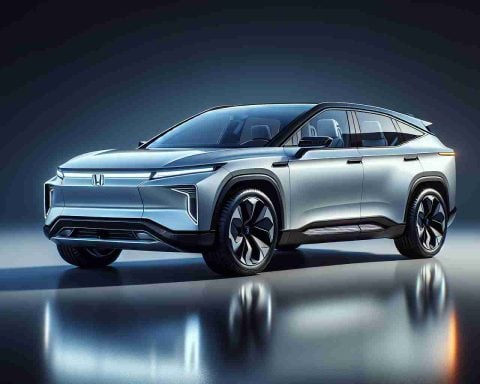Exploring the Electric Scooter Boom
The electric scooter market, valued at USD 10.4 billion in 2023, is set for explosive growth, projected to reach USD 24.8 billion by 2033. With a remarkable compound annual growth rate (CAGR) of 9.1%, this surge is largely fueled by supportive government policies and a rising consumer inclination towards sustainable modes of transport.
As more commuters favor lightweight electric scooters with enhanced battery capabilities, the industry anticipates a significant revenue increase. Growing awareness of environmental issues and the need for cleaner air continues to drive this trend. Electric scooters stand out as a zero-emission alternative to traditional gasoline vehicles, making them a popular choice among eco-conscious consumers.
Innovations in battery technology are playing a pivotal role. Enhanced lithium-ion batteries are not only prolonging the operational range but are also improving the affordability and efficiency of electric scooters, offering faster charging times and prolonged use.
Market Insights and Future Projections
From 2018 to 2022, market demand expanded at a CAGR of 7.1%. Noteworthy projections include the maxi electric scooter segment, which is expected to grow at a CAGR of 9.0% leading up to 2033. Geographically, significant growth is anticipated in China and India, while the UK is also predicted to maintain a robust trajectory.
Competitive Landscape
Key players in the electric scooter industry are continuously refining their products and seeking strategic partnerships to enhance their market presence. Recent initiatives include substantial investments in production facilities, with notable developments like Bajaj Auto’s new electric vehicle plant in India, which aims to produce 5,000 units annually.
As the electric scooter sector evolves, its impact on urban mobility and environmental sustainability cannot be overstated.
The Electric Scooter Revolution: What You Need to Know
Exploring the Electric Scooter Boom
The electric scooter market, valued at USD 10.4 billion in 2023, is set for explosive growth, projected to reach USD 24.8 billion by 2033. With a remarkable compound annual growth rate (CAGR) of 9.1%, this surge is largely fueled by supportive government policies and a rising consumer inclination towards sustainable modes of transport.
As more commuters favor lightweight electric scooters with enhanced battery capabilities, the industry anticipates a significant revenue increase. Growing awareness of environmental issues and the need for cleaner air continues to drive this trend. Electric scooters stand out as a zero-emission alternative to traditional gasoline vehicles, making them a popular choice among eco-conscious consumers.
Innovations Driving the Market
Innovations in battery technology are playing a pivotal role. Enhanced lithium-ion batteries are not only prolonging the operational range but are also improving the affordability and efficiency of electric scooters, offering faster charging times and prolonged use.
Here are the key innovations and features leading the way:
– Fast Charging Technology: New charging systems can reduce downtime, allowing users to recharge their scooters in as little as one hour.
– Smart Technologies: Integration of IoT (Internet of Things) allows users to monitor battery health, speed, and location through mobile apps.
– Advanced Safety Features: The incorporation of regenerative braking systems and enhanced lighting options ensures rider safety in urban environments.
Market Insights and Future Projections
From 2018 to 2022, the market demand expanded at a CAGR of 7.1%. Noteworthy projections include the maxi electric scooter segment, which is expected to grow at a CAGR of 9.0% leading up to 2033. Geographically, significant growth is anticipated in China and India, while the UK is also predicted to maintain a robust trajectory.
Trends Affecting the Market
1. Urbanization: As cities grow, the demand for efficient, space-saving transport solutions is increasing.
2. Government Initiatives: Many governments are offering incentives for electric vehicle adopters, boosting sales.
3. Shared Mobility Solutions: Electric scooter sharing services are proliferating in urban centers, aiding in reducing congestion and emissions.
Competitive Landscape
Key players in the electric scooter industry are continuously refining their products and seeking strategic partnerships to enhance their market presence. Recent initiatives include substantial investments in production facilities, with notable developments like Bajaj Auto’s new electric vehicle plant in India, which aims to produce 5,000 units annually.
Pros and Cons of Electric Scooters
Pros:
– Zero Emissions: Contributes to reduced urban air pollution.
– Cost-Effective: Lower operational and maintenance costs compared to gas vehicles.
– Portability: Easily transportable and convenient for urban commuting.
Cons:
– Limited Range: Many models still have a range that may not suit longer commutes.
– Weather Dependency: Performance may suffer in adverse weather conditions.
– Regulatory Challenges: Varying regulations concerning usage and safety across locations.
Use Cases
Electric scooters are increasingly adopted in various scenarios:
– Commute to Work/School: Ideal for short, urban trips.
– Tourism: Many cities offer electric scooters for tourist exploration.
– Delivery Services: E-scooters are also used by food and other delivery services for efficient last-mile logistics.
Insights into the Future
As the electric scooter sector evolves, its impact on urban mobility and environmental sustainability cannot be overstated. With enhanced technology and governmental support projected to drive the industry forward, consumers can expect more diverse options coupled with environmental benefits.
For more information about the growing electric scooter market and innovations, visit Electric Vehicles.


















